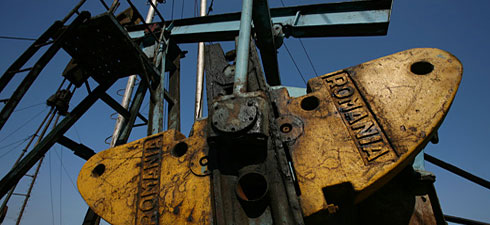The world's largest oil companies are preparing to participate in a call for tenders for hydrocarbon exploration and extraction in the Romanian Black Sea. Obtained in 2009, in the wake of an International Court of Justice ruling on the maritime boundary to divide the Black Sea continental shelf between Romania and Ukraine, the 9,700 square kilometres of Romania's exclusive economic zone have been estimated to contain one trillion cubic metres of natural gas and 10 millions tons of oil.
Bidders near and far
This spring's calls for tender organized by the National Agency for Mineral Resources (NAMR) for exploration and development rights to 30 Romanian blocks both on land and off-shore will be the largest in 15 years. Five of the blocks in the area close to Snake Island have attracted the attention of the world's biggest oil companies, who believe that the possible oil and gas reserves in the Black Sea continental shelf could make a major contribution to global supplies.
According to information supplied by NAMR, to date 20 companies and consortiums have purchased data on the area concerned. These include US giants ExxonMobil and Hunt Oil, Total (France), Lukoil (Russia), OMV Petrom (Romania), Romgaz (Roumania), Audax Resources (Australia), Blackstairs Energy (Ireland), and MOL & Expert Petroleum (Hungary-Romania). Applications will be evaluated on the basis of the proposed volume of investment, the technical capacity of candidates and the environmental impact of their projects. The winners for each block will be officially announced in July, and the oil deals could come into force as early as February 2011, once they have been ratified by the government in Bucharest.
Potentially Europe's main source of supply
Excitement about Black Sea energy reserves was clearly evident at the Black Sea Energy and Economic Forum held in Bucharest in September 2009. At the event, Richard Morningstar, Special Envoy of the United States Secretary of State for Eurasian Energy, was keen to emphasize that the area could be hiding major reserves of hydrocarbons — a view shared by Mehmet Uysal, President of TPAO (the Turkish national oil company) who pointed out that "the Black Sea reserves had the potential to become Europe's main source of supply." Hunt Oil's vice-president in charge of international exploration, Tom Cwikla, who was also present, declared that Europe should develop its own energy resources — an assertion which no doubt encouraged NAMR to list his company as a potential candidate in the call for tenders.
The exploration of the Romanian Black Sea continental shelf began in 1969, and the first oil find in the area dates back to 1980. Production began a few years later in 1987. Currently, Petrom Roumanie operates two Black Sea fields, which provide 18% of the company's oil and gas. Its competitor Midia Resources (Romania) is also working on two more fields, which it pledges will begin production in 2011-2012.
Was this article useful? If so we are delighted!
It is freely available because we believe that the right to free and independent information is essential for democracy. But this right is not guaranteed forever, and independence comes at a cost. We need your support in order to continue publishing independent, multilingual news for all Europeans.
Discover our subscription offers and their exclusive benefits and become a member of our community now!












